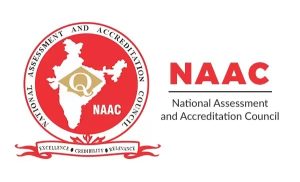Twentieth Annual Bodh Raj Sawhny Memorial Oration 2019
15 October 2019, at Justice Y. K. Sabharwal Moot Court Hall, NLU Delhi
The Twentieth Annual Bodh Raj Sawhny Memorial Oration 2019, under the auspices of Justice Bodh Raj Sawhny Memorial Trust (BRSMT), was graced by luminaries like Dr. Karan Singh (former Member of Parliament) who delivered the oration, BRSMT Chairman Prof. (Dr.) L. M. Nath, and BRSMT Managing Trustee Mrs. Meera Nath.
In the introductory remarks, Dr. Karan Singh was introduced as a thinker, visionary, and leader; who has contributed significantly to Indian democracy and lectured extensively on philosophy, culture, environment, etc. His contribution to academics is also extensive with having published several books and having been Chancellor of many universities.
Mrs. Meera Nath traced the path of how BRSMT and the BRSMT Oration came into origin and talked about her father Shri Bodh Raj Sawhny, who was an eminent jurist, graduated from Cambridge University and having double PhD from Oxford and Cambridge. She mentioned his extensive contribution to the J&K State by serving through his various roles there, along with being at several positions in the High Court and other places. She also elaborated on the role of BRSMT to promote excellence in legal education, conservation of environment, upliftment of women, and provide students with several scholarships. She mentioned there having been 19 Bodh Raj Sawhny Memorial Orations, now 20, till date.
Dr. Karan Singh in the oration started by congratulating NLU Delhi on being one of the best law schools in the country since its inception only 10 years ago. His oration elaborated on the 4 Pillars of Learning, which he along with other noted chosen luminaries submitted to UNESCO as a report. Pillar 1 is Learning to Know: which transcends from information-to-knowledge-to-wisdom, and learning to develop the capacity to know. He elaborated on the act of knowing to be a participatory process of dialoguing and questioning. Pillar 2 is Learning to Do: which moves further from knowledge to its application, and to learn and develop skills that are implementable. This pillar deals with the attitude of actively doing. Pillar 3 is Learning to Live Together: which is a lifelong process involving a whole spectrum of values. These he categorised under 5 sets, namely – family (gender and generational balance), society (cleanliness, punctuality, teamwork and fundamental duties), interface (between cultures, peoples and environment), and global (values for the world, earth and global eco-system for conservation and preservation). Pillar 4 is Learning to Be: wherein an individual’s own growth of consciousness comes into being, which includes working upon the self and fulfilling inner potentiality.
In the vote of thanks, Dr. Karan Singh was extended with a heartfelt appreciation on the oration being but a gist of his prolifically well-read and well-travelled learnings. It was also mentioned how Dr. Singh brought the oration to life by interpolating it with his vast knowledge on spirituality, vedic and puranic texts, Sanskrit verses, and his experiences and learning through his national and international engagements with politicians, academicians, philosophers, scientists, etc.
National Law University Delhi thanks BRSMT and Dr. Singh for this enlightening oration.





